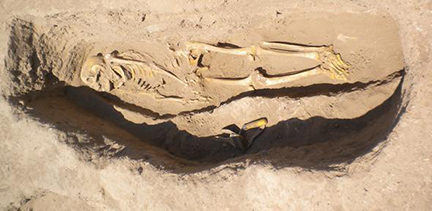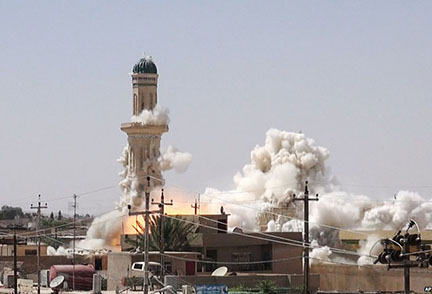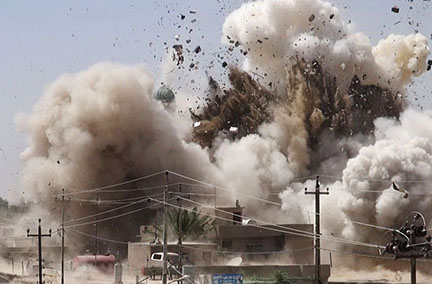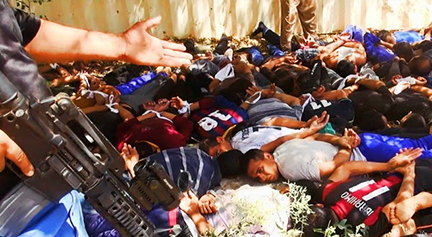
[Sinan Antoon channeling Jonathan Swift…]
by Sinan Antoon, al-Jadaliyya, July 15, 2014
The rise of ISIS and the declaration of a Caliphate that controls large swaths of Iraq and Syria signals a moment of exceptional danger not only for Iraq and its future existence as a state, but for US national interests.
The United States has sacrificed life and limb and invested billions of dollars to save Iraq from dictatorship and help its people build a thriving democracy. Mistakes were made for sure, but our intentions and objectives were always clear: to stabilize and democratize the region. President Obama’s craven policies and his withdrawal from Iraq have squandered the credit and political capital the US held in Iraq and the region. Sending advisors and providing logistical support to Baghdad is insufficient and will not weaken or defeat ISIS. President Obama has allowed Iran to step in and further strengthen its grip on Iraq.
As we write this, Iraqi parliamentarians are voting to choose new leaders. While ditching Maliki is a necessary step for moving forward, we believe that the gravity of the situation calls for a radically different approach. The Caliphate has its eyes on Baghdad and other capitals in the region. Its Jihadist ideology has already attracted hundreds of young Muslims from Europe and elsewhere who have joined its ranks. The violence will be exported to the free and civilized world and this threatens to squander all the hard-fought gains of the war on terror. Continue reading A Practical Solution for Iraq







